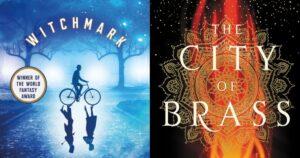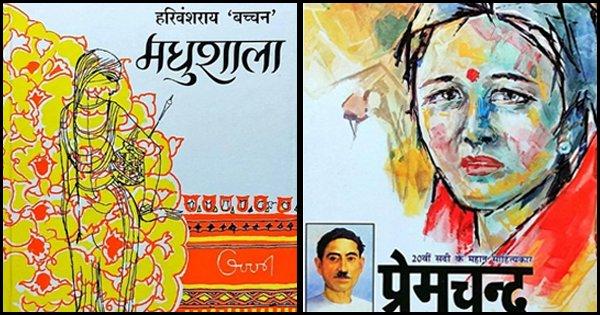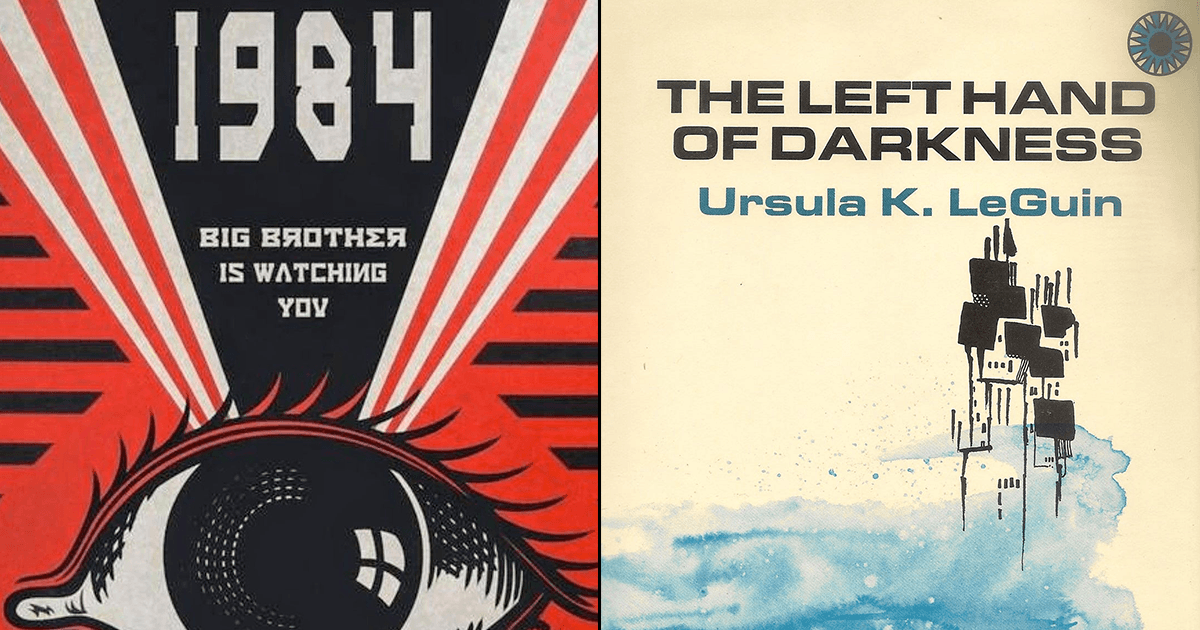The sound of the parchment and their warmth inducing fragrance, the feeling of holdingand savouring our favourite works of literature, are possibly the most reassuring experiences in the drudgery that life is. Books are an escape, a guiding light through life, our constant companions in the discovery of our own selves and the beauty that our world holds.
While it is absolutely impossible to list down all the enthralling novels that have been penned by the thousands of brilliant minds that have come before us, this is an attempt to enlist some of the most essential works of literature that we have been graced with, in no particular order of preference.
1. Animal Farm
A deceptively simple tale, George Orwell wrote this in 1943 as an attack against the darker side of Communism. Animal Farm is about an animal uprising; written in the style of a fable, this satirical masterpiece has some deep connotations. This brilliant novella is a perfect treatise on our society and will give you an understanding of the role of power in society and how it corrupts those who are in possession of it.
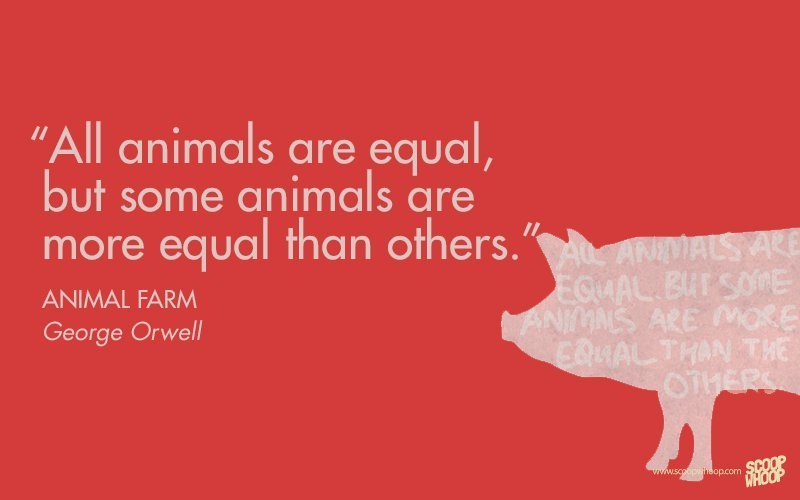
2. The Little Prince
Essentially a book written for children, The Little Prince is more for grown ups who remember being children. It is an ode to magic and innocence. As the Prince lands on the earth from his asteroid, a charming tale of love and loss unfolds, which will leave you feeling ecstatic and strangely heartbroken at the same time. Going back to The Little Prince as an adult will hit a spot, I promise.
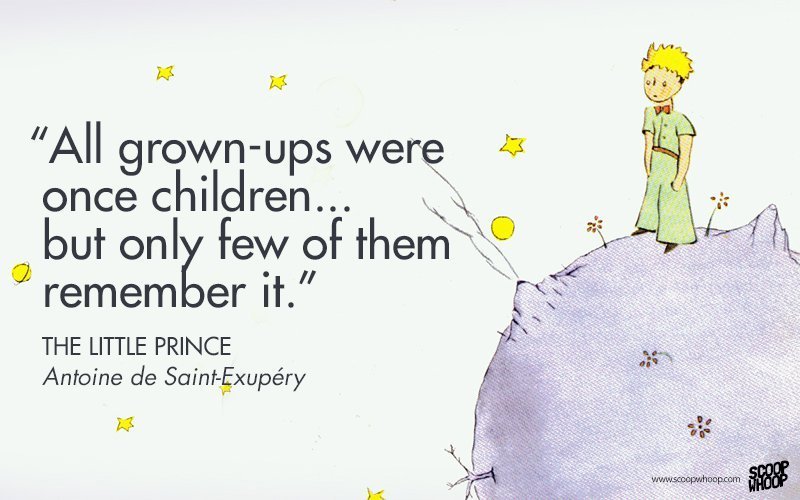
3. The Kite Runner
Set in Afghanistan, Khaled Hosseini’s debut novel is bound to leave you deeply affected. The rawness with which Hosseini deals with abuse, violence, neglect, suicide, and terrorism will leave you with a hole in your heart, in the best possible way. It is a beautiful, haunting and powerful tale of friendship; one that you won’t forget in a lifetime.
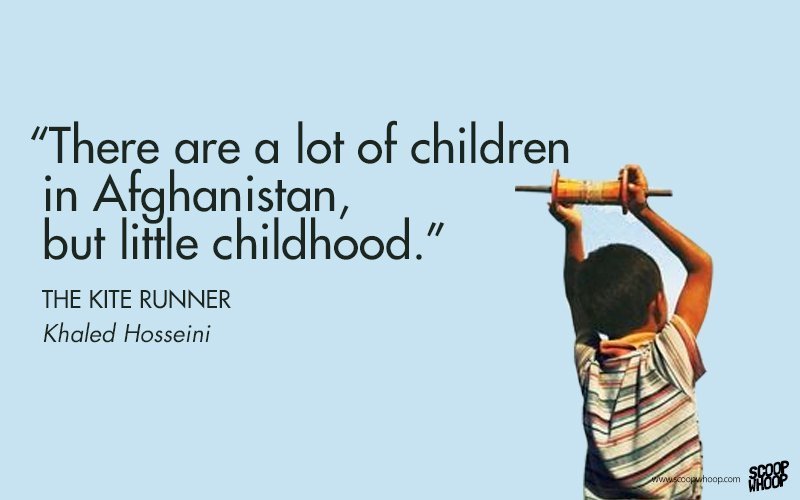
4. To Kill A Mockingbird
Hailed as ‘The American Novel’ To Kill A Mockingbird is about having the courage to stand by your convictions. Narrated through the ingenuous eyes of a child, this novel explores the importance of integrity and duty when faced with intolerance and injustice. With a message of anti-racism at its core, Harper Lee breaks down stereotypes with finesse and teaches a thing or two about being respectful to our fellow human beings.
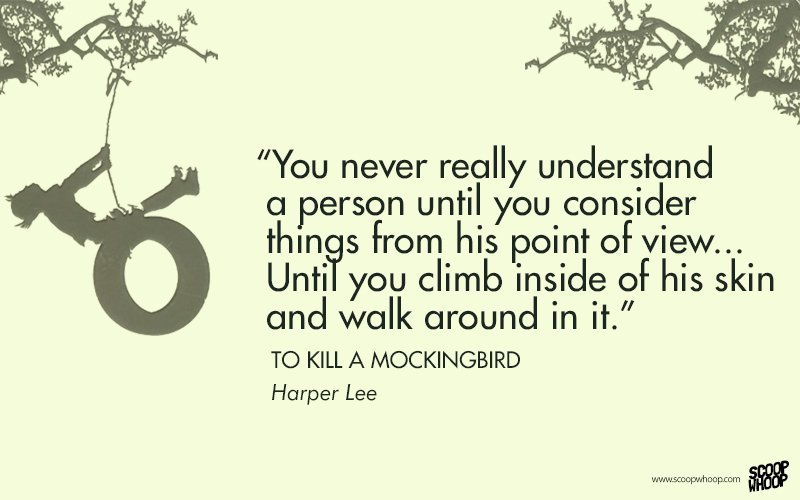
5. The Catcher in the Rye
J.D. Salinger’s classic The Catcher in the Rye has always been ever so relatable since it’s publication in the 50s. 16-year-old Holden Caulfield and his antics have since been synonymous with “cynical adolescent.” Salinger captures the essence of teenage angst and alienation with an edgy narrative and through Holden’s constant wry observations.
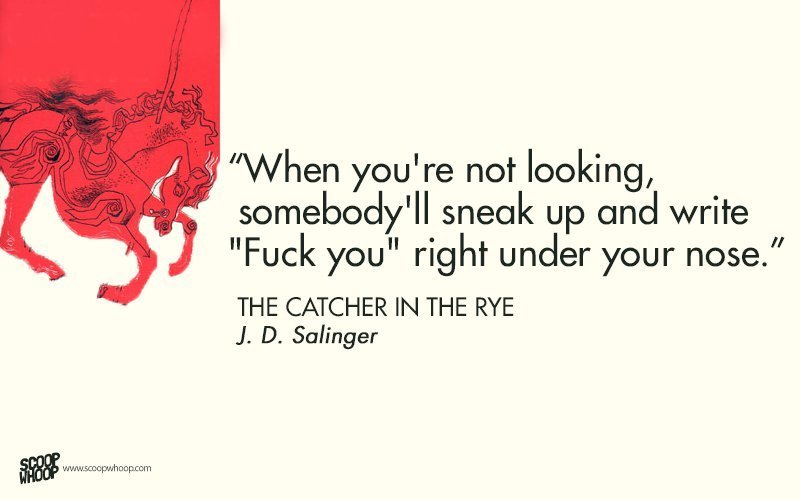
6. One Hundred Years of Solitude
One Hundred Years of Solitude tells the story of six generations of the Buendia family, inhabiting the fictional and magical town of Macondo, somewhere in South America. An enthralling concoction of quirks, ancient mysteries, family secrets and peculiar contradictions culminates into one of Marquez’s best works, and as you soak yourself in the vivid imagery that unfolds with every page, you realize that this fantastic piece of literature is magic realism at it’s finest.

7. The Diary of a Young Girl
A very unusual document in the field of Holocaust literature, Anne Frank’s diary depicts an oddly optimistic tale of one of the darkest periods of history. Filled with quiet moments of happiness, the thirteen year old girl’s diary documents the budding of a precious life. It is fascinating and equally heartbreaking to read about the unfolding of events in her life, and we are indeed fortunate to have been privy to a perfectly intimate record of youth.
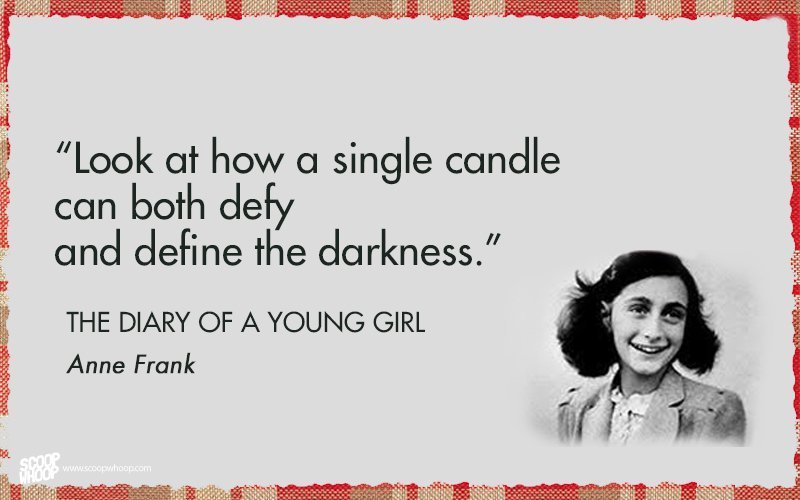
8. On the Road
This roller coaster of a book follows Sal Paradise and Dean Moriarty on their journey across North America in their quest for self-knowledge and experience, fuelled by poetry, jazz and drug use. This classic novel on freedom and longing is a definitive work of what constitutes the Beat Generation.
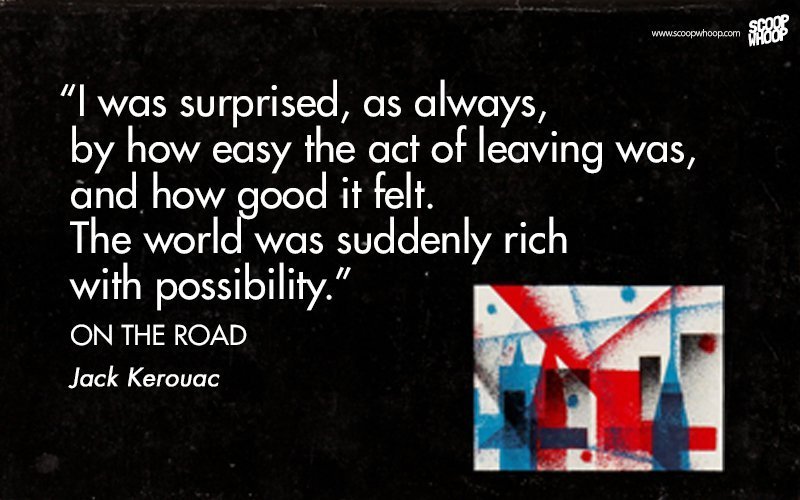
9. Anna Karenina
While it might seem excruciatingly long, Tolstoy’s evocative narrative will keep you hooked to this intricate tale of the politics of relationships and love. You will find yourself feeling deeply involved in the worlds and minds of the complex characters. Anna Karenina’ s triumph lies not just in Tolstoy’s impeccable and heartbreaking portrayal of the protagonist and the stark drama of her fate, but in it’s exploration of the deepest questions about how to live a fulfilled life.
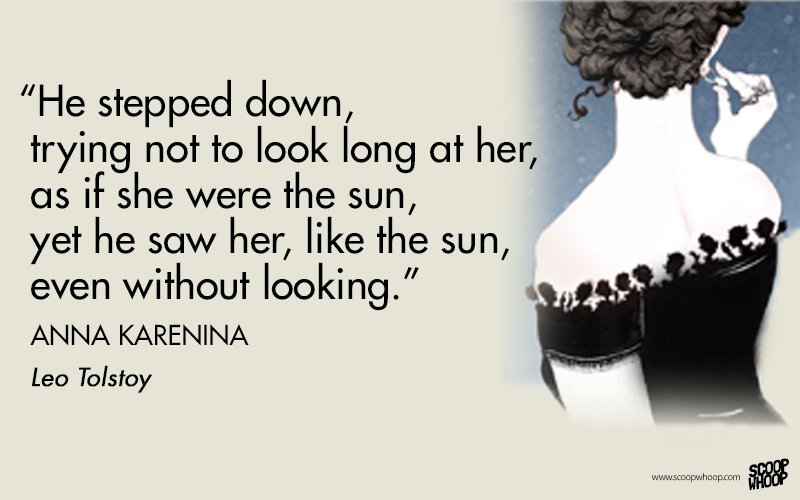
10. Ulysses
Hailed as being blasphemous in its initial years of publication, Irish author James Joyce’s Ulysses is a modernist masterpiece. Ulysses is the Latinised name of Odysseus , the hero of Homer ‘s epic poem Odyssey , and the novel establishes a series of parallels between its characters and events and those of the poem. The narrative unfolds in a stream of consciousness technique and we become privy to the thoughts, emotions and memories of the characters in the novel.
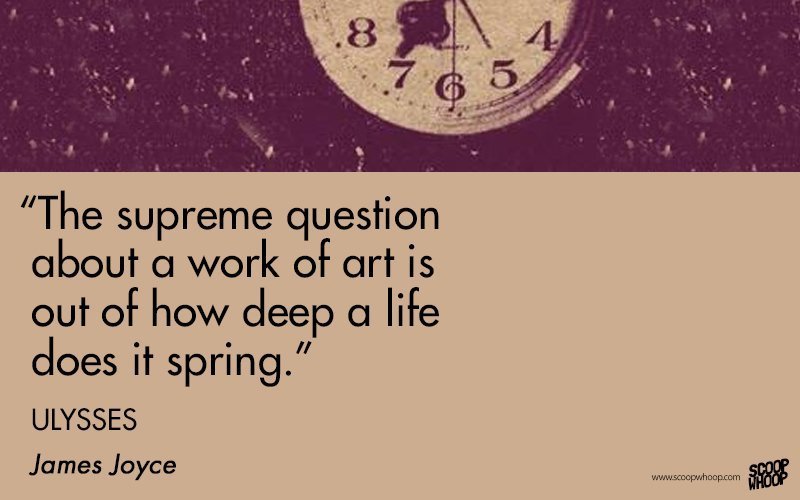
11. 1984
This brilliant novel is one that dwells on dystopia and is startlingly original and haunting. George Orwell creates an imaginary world with his prophetic, nightmarish vision of where the world is headed. Orwell’s writing is so visceral, it will leave you feeling intrigued and disturbed at the same time, in the best possible way.
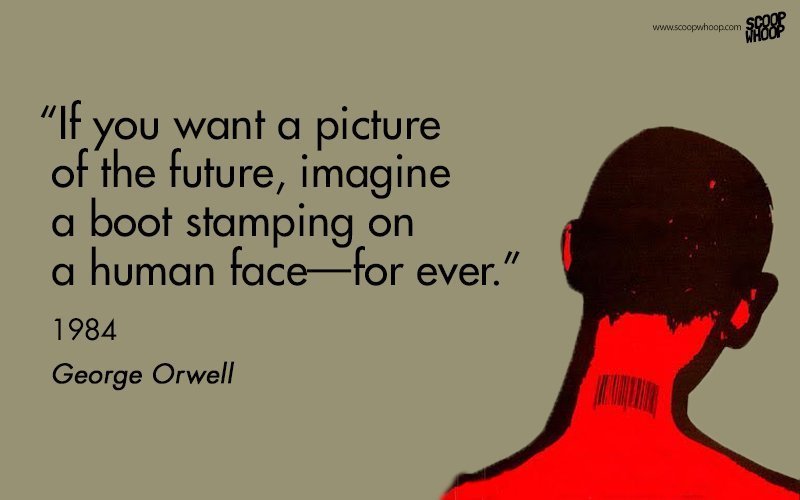
12. The Bell jar
The Bell Jar is a key text of Anglo-American feminism and focuses on a woman’s struggles with her identity in the face of social pressure. This powerful semi-autobiographical novel by Sylvia Plath is the only novel she wrote during her lifetime. It is an intensely emotional and palpably real narration of Esther Greenwood’s downward spiral into the grips of insanity.
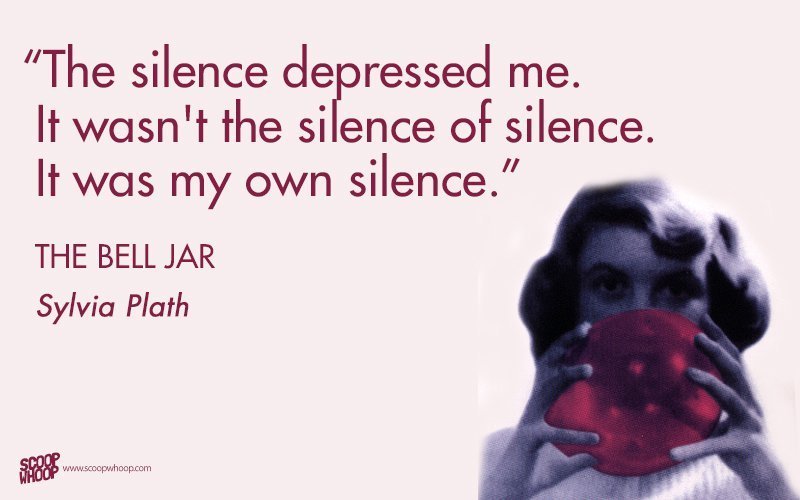
13. Midnight’s Children
In Midnight’s Children Salman Rushdie deals with the portrayal of India’s vast cultural identity in the post-colonial times laced with magic realism, and he does so with elan. The narrative traces the course of Saleem’s life which is inextricably linked with that of his motherland, and every act of his is mirrored in the events that shape the newborn nation of India. The beautiful and complex language that Rushdie employs in his novel brings to life the curious characters and lush imagery.
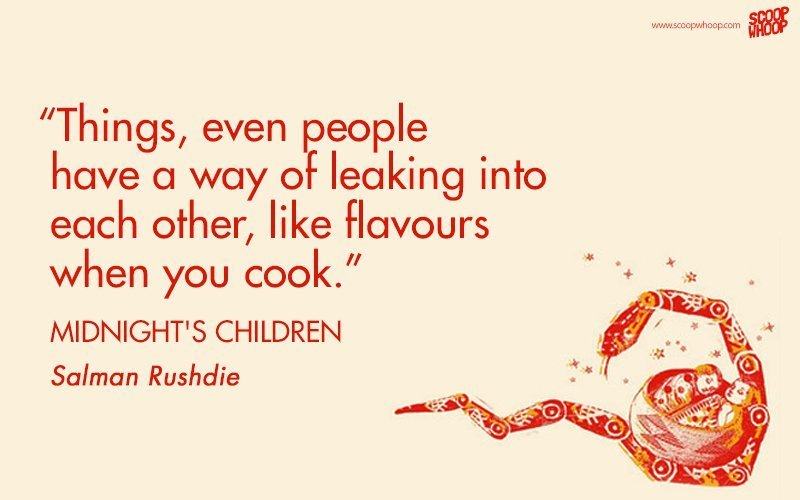
14. The Hitchhiker’s Guide to the Galaxy
Most definitely one of the funniest, if not THE funniest work of science fiction, Douglas Adams’ space odyssey is a wonderfully clever piece of literature. Replete with impish-wit, The Hitchhiker’s Guide to the Galaxy is extremely well-written and provides an enchanting commentary on the human condition. What is a characteristic quality of this roller coaster of a novel is a beautiful absurdity that is tinged with mystery, whimsy, and oodles of wonder.
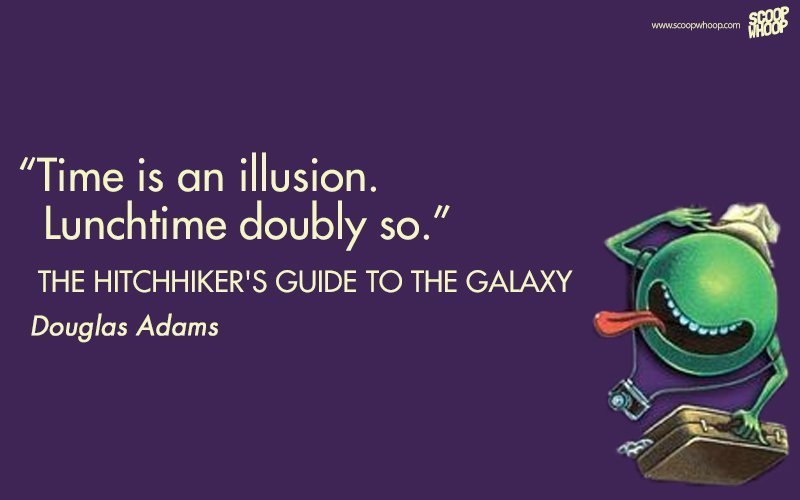
15. Maus, I: A Survivor’s Tale: My Father Bleeds History
Another brilliantly penned Holocaust memoir, Art Spiegelman’s masterpiece is the story of a Jewish survivor of Hitler’s Europe and his son, a cartoonist who tries to come to terms with his father’s story and history itself. The fact that it is a graphic novel brings to life the atrocities of the time- you’re not only reading, but almost watching, the Holocaust. Jews depicted as mice, Germans as cats, this is a poignant story of surviving the Holocaust and life afterwards.
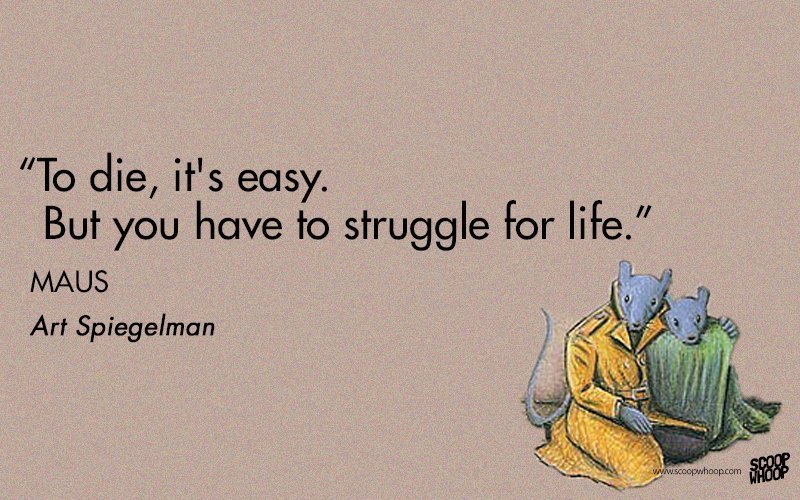
16. Persepolis
Marjane Satrapi’s autobiography is a timeless story of growing up amidst an oppressive misogynistic extremist regime during the Islamic Revolution. It is a humorous and haunting memoir and the brilliant graphics capture the myriad of emotions and experiences she goes through in her tryst with a world where all children are forced to grow up.

17. A Farewell to Arms
Hemingway’s war memoir is at the same time poetic, idyllic and tragic. An expose of the horrors of World War I, A Farewell to Arms is a moving and beautiful book about love and war.
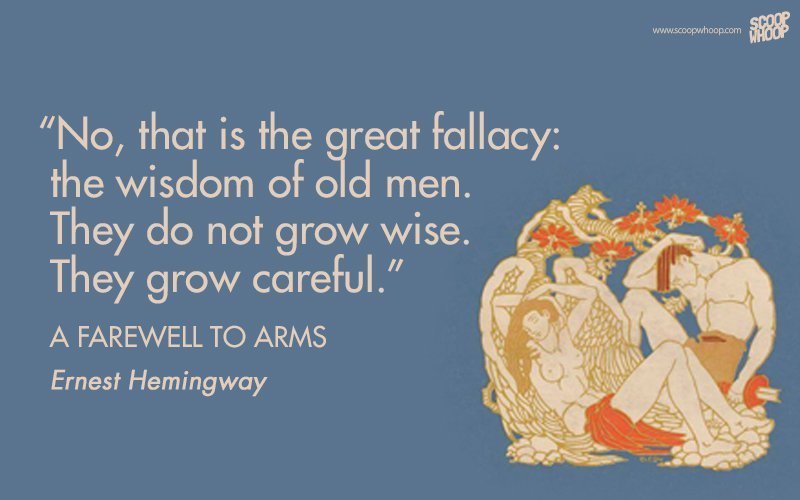
18. I Know Why the Caged Bird Sings
The first of Maya Angelou’s series of autobiographies, I Know Why the Caged Bird Sings is a social record of a young black female growing up in America in the 1930s. It is a raw and powerful coming of age story with the backdrop of racism, violence against women and the problem of identity.
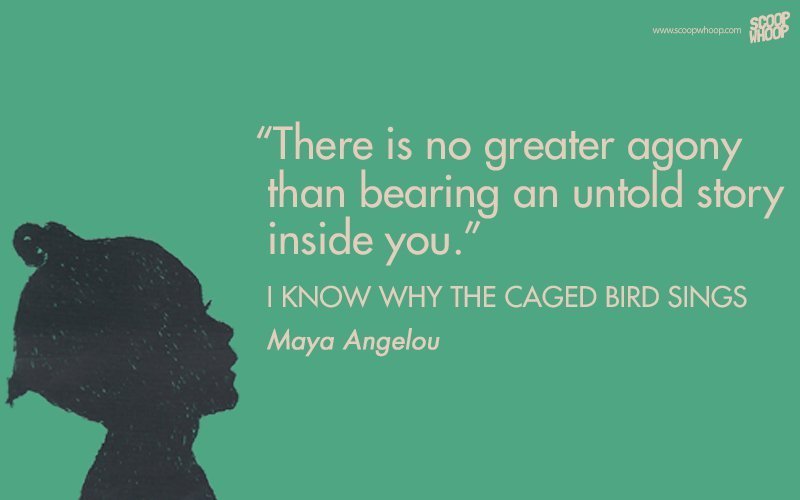
19. Vernon God Little
DBC Pierre’s debut novel is a postmodern version of Catcher in the Rye. Replete with wry humour, Vernon God Little is Pierre’s assessment of American pop culture and is barely about a school shooting as it appears to be on the outset. This book has the very rare quality of simultaneously being wildly funny and startlingly meaningful.
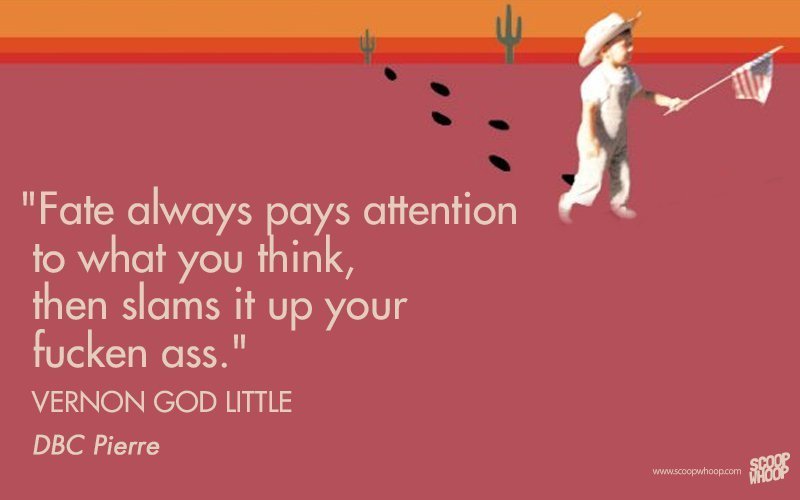
20. Infinite Jest
David Foster Wallace’s Infinite Jest is a philosophical quest with a just the right amount of funny. Uniquely American, this book is about how our desires are moderated and mediated by culture. It explores the passions that make us human and the extent to which entertainment has come to dominate our lives.
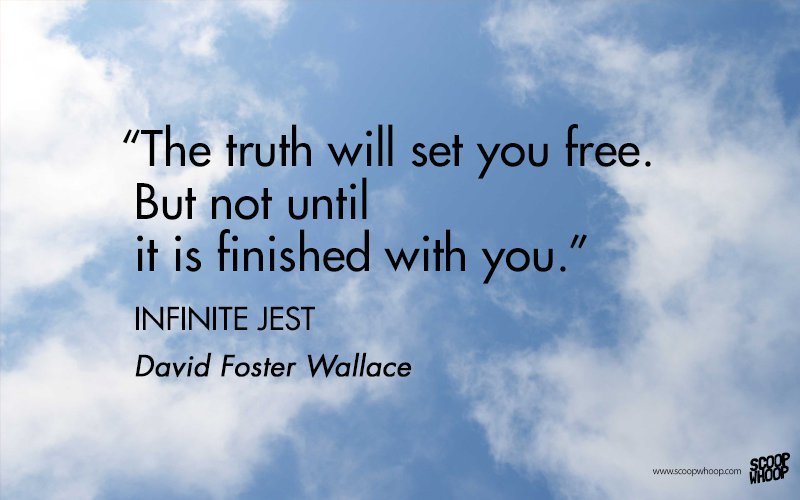
21. The Brothers Karamazov
Dostoyevsky’s genius shines through in this dense work of philosophy disguised as a simple murder mystery. The plot revolves around the lives of three brothers and how they evolve and deal with their struggles based on their differing world views.The enthralling prose of The Brothers Karamazov captures a spiritual drama of moral struggles concerning faith, doubt, and reason, set against a modernizing Russia.
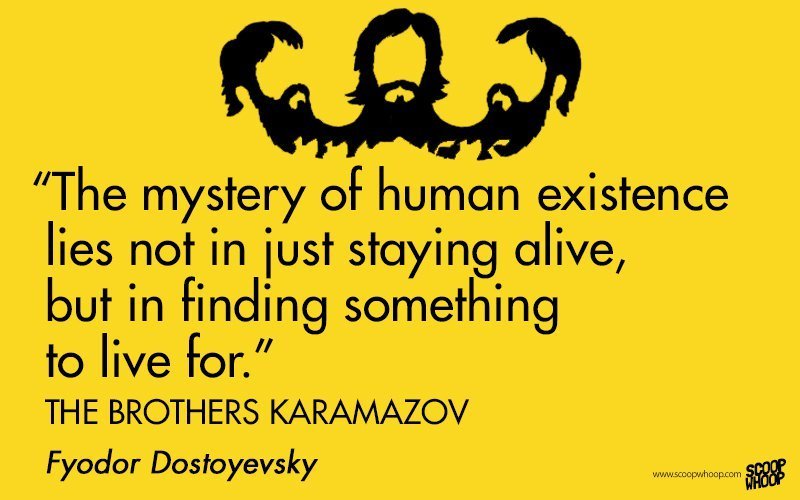
22. Everything is Illuminated
In his debut novel Jonathan Safran Foer fuses slapstick humour with a palpable melancholy that looms through the course of the novel, to give you an exhilarating tale of friendship, love and most importantly, loneliness. Foer’s clever narrative, and the bizarre and heartrending unfolding of events makes Everything is Illuminated one of the most touching narration of stories revolving around the Holocaust.
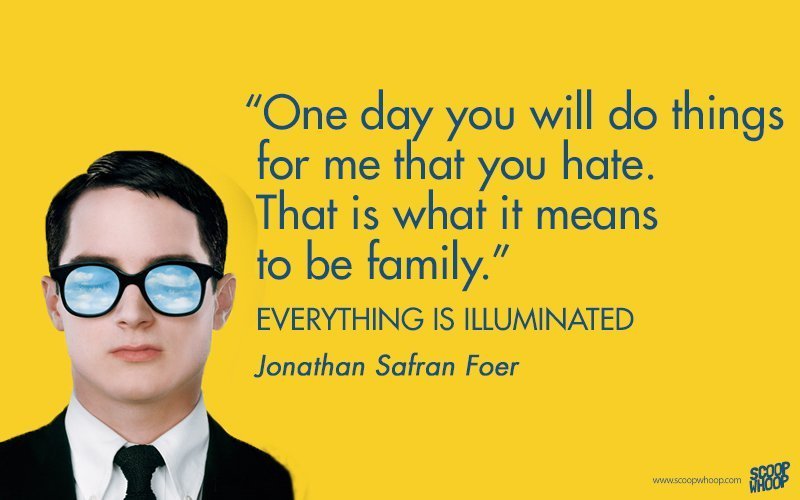
23. Catch 22
Joseph Heller’s Catch-22 is the story of a US airman’s attempts to survive the madness of the Second World War, shortly after returning from the conflict himself. Using satire, black humour and seemingly undefeatable logic, the book brings to light the apparent madness of the modern world.
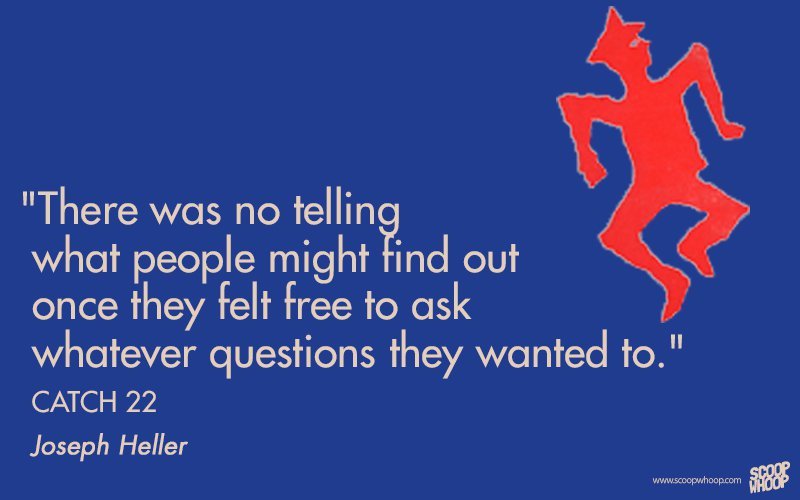
24. Three Men in a Boat
What was intended to be a travel guide to a boat trip on the river Thames, Three Men in a Boat is an amusing account of three friends, and their dog, on a boating expedition. Narrated in a Wodehouse-esque style, Jerome K Jerome’s classic is replete with misadventures and sheer silliness and will leave you pleasantly happy by the end of it.
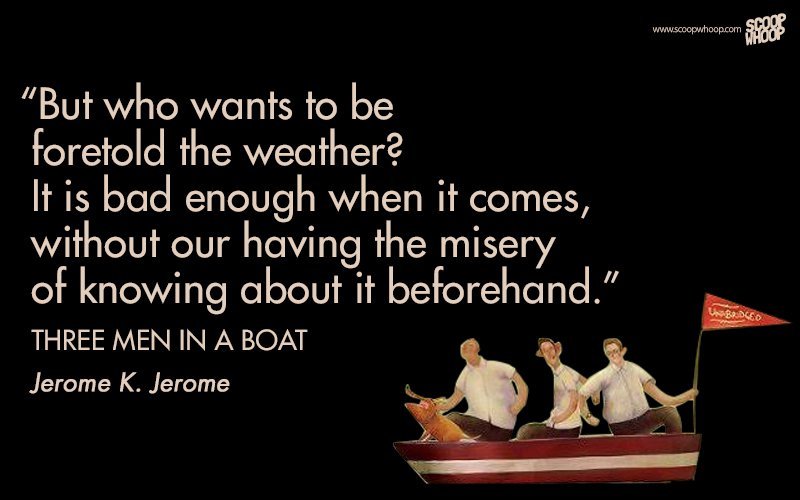
25. The Time Machine
The Time Machine is one of the earliest popular works of science fiction and is a brilliant commentary on the themes of evolution of the human race and the prevailing class structures. A prophecy of social doom, in this brilliant novella, H. G. Wells uses the motif of time travel to highlight the glaring divide between the rich and the poor in Victorian England.
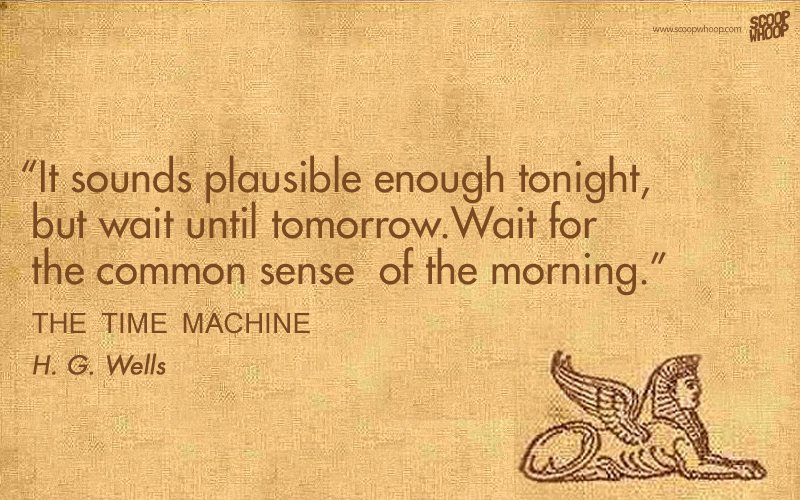
26. A Brief History of Time
In A Brief History of Time: From the Big Bang to Black Holes , Stephen Hawking provides an insight into the mystique that is the universe we inhabit. Replete with physics and philosophy, one of the most fascinating scientists of our time has given us an enthralling historical overview of cosmology. In his attempt at explaining the world as we know it, while simultaneously raising pertinent questions, Hawking has awakened our minds and made accessible the treasures of science and the knowledge of the universe.
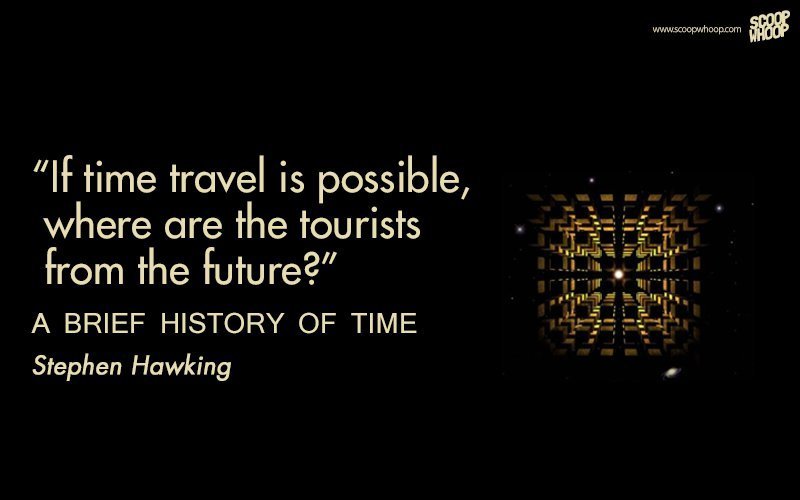
27. The Curious Incident of the Dog in the Night-time
Mark Haddon’s The Curious Incident of the Dog in the Night-time is the tale of a boy detective who lives on patterns, rules, and a diagram kept in his pocket. Narrated from the point of view of a fifteen year old with Asperger’s Syndrome, the author provides an insight into the emotional and moral confusion in the lives of the adults around him with the help of the narrator’s innocence.
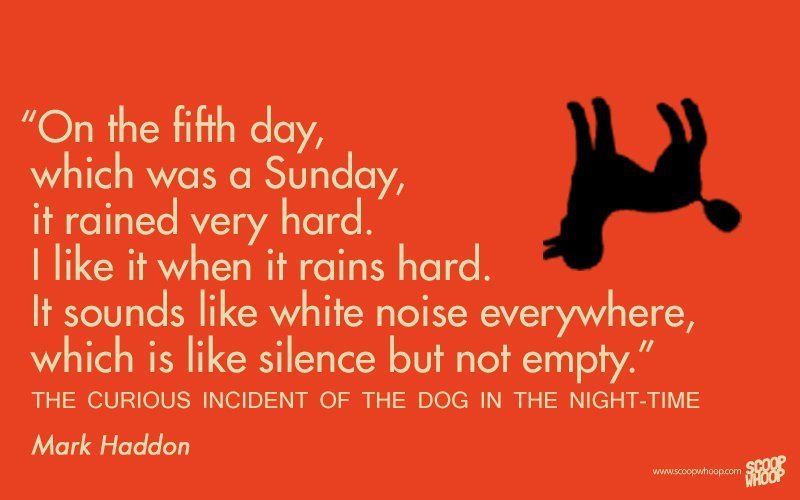
28. The Book Thief
The Book Thief tells the story of Leisel, a young German girl who comes of age during World War II. It is narrated by Death, who has a personality of his own and is constantly trying to understand the human race. The story unfolds with lively humour and you will find yourself wrapped within some of the richest descriptions of one of the most horrific times in recent history. An unusual take on the Holocaust, it is an unforgettable story about the ability of books to enrich the soul.
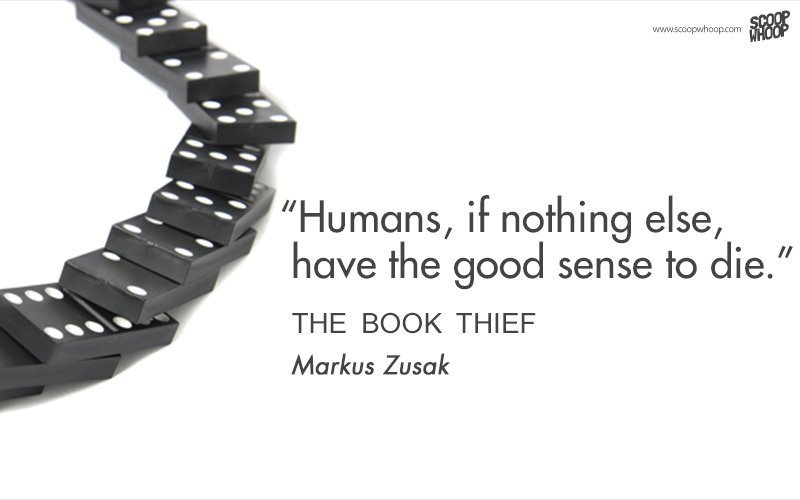
29. Trainspotting
Written in the Scottish dialect, Irvine Welsh’s genius novel is a trip in its own right. It revolves around Mark Renton, an intelligent, somewhat bitter and philosophical junkie, who in between trying to quit heroin, muses about the meaning of life and the pleasures and pain of being a junkie. Trainspotting is a brilliant, haunting and hilarious story about a group of Scottish junkies- binge drinking, shooting up in squalid apartments, random sex, and their attempts at a normal life.
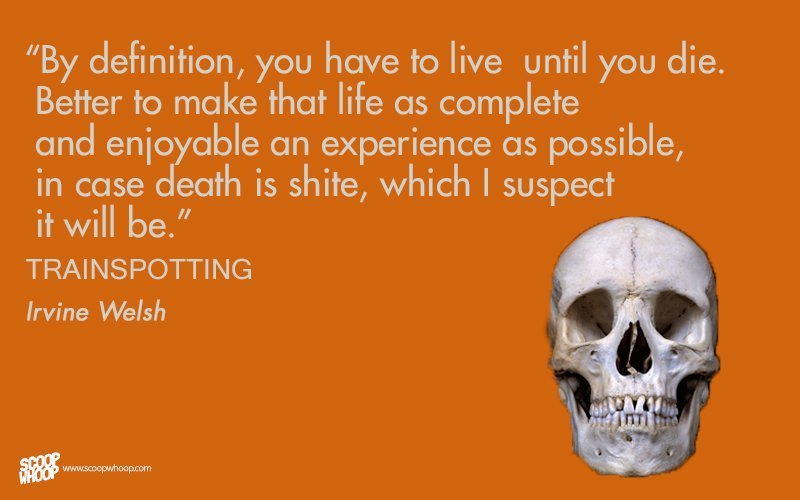
30. The Trial
In this haunting novel, Franz Kafka presents a bleak world where a once respectable bank clerk is suddenly prosecuted for apparently no reason at all, and does not even have the benefit of an effective lawyer to represent him. The Trial is deeply thought-provoking in its uncomfortable presentation of a world where people are observed by the secret police and suddenly arrested, reflecting the social turmoil in Europe around the time Kafka wrote it in 1914.
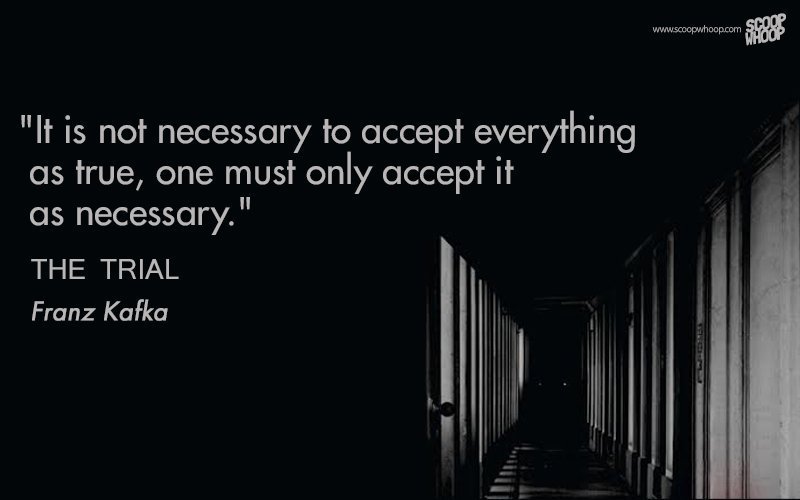
Disclaimer: Yes, I am well aware that I have not included the Harry Potter series, or Lord of The Rings, and there just isn’t enough of Marquez, Kafka, Huxley or even Murakami. And I really really want to recommend The Mahabharata. But you see, that’s the thing about books. You can never have an exhaustive compilation of literature that you must experience.




